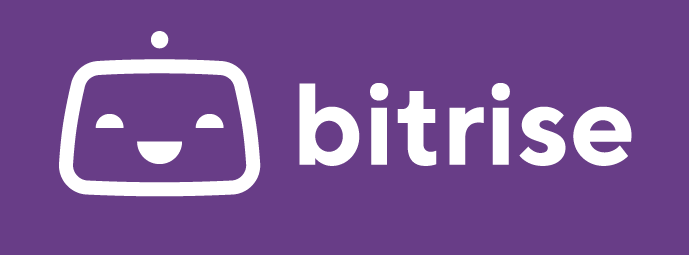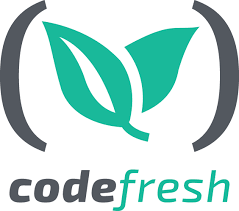If you’re looking at Atlassian Bamboo and wondering whether there might be better-fitting options, you’re not alone. Many teams ask whether the tool aligns with their workflow, budget, team size or infrastructure style. In the following sections we’ll walk through a few viable alternatives – how they differ, where they shine and who they might be right for – so you can pick what feels right for your setup.

1. AppFirst
AppFirst was built for teams that want to move quickly without being slowed down by infrastructure work. Instead of spending hours writing Terraform or YAML files, it lets developers define what their app needs, and it handles the rest. Its focus is on giving teams full ownership of their applications while it takes care of the provisioning, security, and compliance behind the scenes. It’s a way to keep shipping without the overhead of managing the underlying setup.
AppFirst fits into existing workflows without demanding a big shift in process. Whether it’s AWS, Azure, or GCP, it automatically sets up secure environments, standardizes logging and monitoring, and provides cost visibility for every app. The goal is simple: let teams focus on their product instead of cloud infrastructure. It doesn’t replace DevOps – it makes their work smoother and less time-consuming.
Faits marquants :
- Automatic provisioning of secure infrastructure across major cloud providers
- Built-in logging, monitoring, and alerting
- Centralized auditing for all infrastructure changes
- Cost visibility by application and environment
- Works as SaaS or self-hosted deployment
Pour qui c'est le mieux :
- Developer teams looking to reduce infrastructure maintenance
- Companies standardizing infrastructure across multiple environments
- Fast-moving teams shipping applications without DevOps bottlenecks
- Organizations needing compliance and visibility without extra tooling
Informations de contact :
- Site web : www.appfirst.dev
2. GitLab
GitLab brings CI/CD, security, and version control together in one place. Their platform focuses on reducing tool fragmentation by letting teams plan, build, test, and deploy software without jumping between systems. The approach centers on automation and traceability, where code changes flow through consistent pipelines with built-in security checks and compliance steps. This makes it easier for teams to manage projects from commit to production while maintaining visibility across every stage.
They also put strong emphasis on AI-assisted development. Features like code suggestions, automated vulnerability scans, and contextual insights are integrated directly into the workflow, which helps developers write, test, and deliver software faster without sacrificing quality. It’s not about replacing people with AI, but about giving teams practical tools to cut down repetitive work and focus on higher-value tasks.
Faits marquants :
- Unified DevSecOps platform covering CI/CD, version control, and security
- Automated pipelines with integrated testing and compliance checks
- AI-powered tools for code suggestions and debugging
- Built-in visibility and tracking across all stages of software delivery
- Suitable for both small and enterprise teams
Pour qui c'est le mieux :
- Teams looking for an all-in-one DevSecOps environment
- Organizations that want to streamline CI/CD pipelines with built-in security
- Developers who benefit from AI-assisted coding and automation
- Companies aiming to reduce context switching between multiple tools
Informations de contact :
- Website: gitlab.com
- Facebook : www.facebook.com/gitlab
- Twitter : x.com/gitlab
- LinkedIn : www.linkedin.com/company/gitlab-com

3. GitHub
GitHub offers an integrated space for developers to collaborate, automate, and manage software delivery. Their platform brings version control, project tracking, and CI/CD under one roof, allowing teams to move from planning to deployment without switching tools. Through GitHub Actions, teams can automate testing and deployment pipelines, ensuring smoother and more reliable workflows across different environments. The emphasis is on collaboration and visibility, with code reviews, issue tracking, and workflow automation all happening in the same place.
They also integrate AI into various stages of the development process. GitHub Copilot assists with coding, debugging, and refactoring, while automation tools handle testing, deployment, and security scanning. Security features such as secret detection, dependency monitoring, and automated fixes add another layer of reliability. The result is a unified environment that supports modern CI/CD practices without adding extra overhead to development teams.
Faits marquants :
- GitHub Actions for CI/CD automation across multiple environments
- Integrated AI tools for code generation, refactoring, and issue resolution
- Built-in security features like vulnerability detection and secret protection
- Centralized workflow with version control, project management, and collaboration
- Scalable environment suitable for both open source and enterprise projects
Pour qui c'est le mieux :
- Teams already using GitHub for version control and collaboration
- Developers looking to automate CI/CD pipelines within a single platform
- Organizations focusing on secure, scalable workflows
- Engineering teams that value visibility and simplicity in their delivery process
Informations de contact :
- Website: github.com
- Twitter: x.com/github
- LinkedIn: www.linkedin.com/company/github
- Instagram: www.instagram.com/github

4. CircleCI
CircleCI is a continuous integration and delivery platform that helps teams automate software builds, testing, and deployment across various environments. They provide a flexible setup that integrates easily with GitHub, GitLab, and Bitbucket, allowing developers to manage workflows using containers or virtual machines. The platform focuses on speeding up feedback loops by running tasks in parallel and caching dependencies efficiently, so teams can detect and fix issues early in the process. With support for multiple programming languages and cloud providers, CircleCI fits neatly into a wide range of development ecosystems.
They also place emphasis on reliability and customization. Teams can define pipelines using YAML configuration files and adjust performance based on their scaling needs. Built-in integrations for cloud services, container registries, and monitoring tools make it easier to maintain a consistent delivery process without relying heavily on manual steps. By automating much of the repetitive work, CircleCI lets engineering teams focus on improving their applications rather than managing infrastructure or deployment logistics.
Faits marquants :
- Continuous integration and delivery with flexible pipeline configurations
- Works with GitHub, GitLab, and Bitbucket
- Parallelism and caching to reduce build and test times
- Supports containers, VMs, and multiple programming environments
- Integrates with popular cloud platforms and monitoring tools
Pour qui c'est le mieux :
- Teams seeking automation across diverse cloud and code environments
- Developers looking for scalable and efficient CI/CD workflows
- Organizations using Git-based repositories for version control
- Engineering teams that prefer YAML-based configuration and flexible infrastructure
Informations de contact :
- Website: circleci.com
- Twitter: x.com/circleci
- LinkedIn: www.linkedin.com/company/circleci

5. Bitrise
Bitrise is a CI/CD platform built specifically for mobile development. Unlike general-purpose tools, they focus on automating and optimizing the unique steps required for building, testing, and deploying mobile apps. Their platform supports both iOS and Android, providing ready-to-use build environments, automatic code signing, and seamless integrations with app stores and third-party tools. Developers can connect their repositories from services like GitHub or GitLab and quickly set up workflows for mobile pipelines without heavy configuration or manual maintenance.
The platform offers flexible scaling options and tools designed to handle the recurring pain points of mobile CI/CD, such as managing dependencies, caching builds, and handling frequent OS or SDK updates. Bitrise’s workflow editor allows teams to customize pipelines visually or with scripts, and its monitoring tools help identify bottlenecks in the build and test process. Because it’s fully hosted, teams don’t need to manage build hardware, which can simplify operations for mobile-focused organizations that release updates frequently.
Faits marquants :
- Built specifically for mobile CI/CD across iOS and Android
- Pre-configured build environments with automatic code signing
- Integrations with GitHub, GitLab, Bitbucket, and app stores
- Build caching and dependency management to speed up pipelines
- Workflow customization using a visual editor or custom scripts
- Fully managed cloud infrastructure for faster setup and maintenance
Pour qui c'est le mieux :
- Mobile teams looking to simplify iOS and Android app delivery
- Developers working with frameworks like React Native, Flutter, or Kotlin Multiplatform
- Organizations that prefer a hosted solution over managing macOS or Linux build servers
- Teams needing fast, consistent pipelines optimized for frequent mobile releases
Informations de contact :
- Website: bitrise.io
- Facebook: www.facebook.com/bitrise.io
- Twitter: x.com/bitrise
- LinkedIn: www.linkedin.com/company/bitrise
- Address: 548 Market St ECM #95557 San Francisco, CA 94104-5401
6. Octopus Deploy
Octopus Deploy focuses on simplifying and managing the release and deployment stages of CI/CD workflows. They position themselves as a deployment automation and release orchestration platform that can integrate with existing CI tools such as Jenkins, GitHub Actions, or Azure DevOps. While tools like Bamboo handle the build and integration side of things, Octopus takes over after the build to automate deployments across environments like Kubernetes, cloud platforms, and on-premise infrastructure. Their setup helps teams maintain consistent deployment processes without depending on large custom scripts or manual steps.
They also offer features for managing multi-environment releases, security controls, and compliance needs. Teams can define reusable deployment processes, promote releases automatically between environments, and gain visibility into ongoing and past deployments through centralized dashboards. Octopus supports integrations with popular cloud providers, container platforms, and infrastructure-as-code tools, which makes it adaptable to a range of software delivery models.
Faits marquants :
- Focuses on deployment automation and release orchestration
- Integrates with CI tools such as Jenkins, GitHub Actions, Azure DevOps, and Bamboo
- Supports deployments across Kubernetes, cloud, and on-premise environments
- Includes role-based access, audit logs, and compliance features for enterprises
- Offers reusable deployment templates and process automation
- Centralized dashboard for tracking and managing multiple deployments
Pour qui c'est le mieux :
- Teams that already use a separate CI tool and need advanced deployment automation
- Organizations managing complex or large-scale environments across cloud and on-prem systems
- DevOps teams looking to standardize release processes and improve visibility into deployments
- Enterprises that require compliance and access control within their deployment pipelines
Informations de contact :
- Website: octopus.com
- E-mail: sales@octopus.com
- Twitter: x.com/OctopusDeploy
- LinkedIn: www.linkedin.com/company/octopus-deploy
- Address: Level 4, 199 Grey Street, South Brisbane, QLD 4101, Australia
- Phone: +1 512-823-0256

7. LinearB
LinearB focuses on improving software delivery through visibility, automation, and AI-driven insights rather than handling traditional CI/CD tasks directly. They provide tools that connect data from systems like GitHub, Jira, and CI servers to help teams understand where delays happen in the development and release cycle. While Atlassian Bamboo manages build pipelines and deployments, LinearB sits above that layer, helping teams measure performance, identify workflow bottlenecks, and automate policy-based processes such as pull request approvals or test enforcement.
Their platform integrates with popular tools across the development stack, giving engineering managers a unified view of delivery health, team efficiency, and how AI-generated code impacts release velocity. Beyond metrics, it enables teams to automate repetitive parts of their process, like routing PRs or enforcing merge policies, which can reduce manual coordination. LinearB is often used to improve collaboration between developers and leadership by turning workflow data into actionable insights without changing existing CI/CD setups.
Faits marquants :
- Focuses on delivery analytics, workflow automation, and AI-driven process insights
- Integrates with GitHub, GitLab, CircleCI, Jenkins, and similar tools
- Helps teams spot bottlenecks in code review, testing, and release cycles
- Provides automation for PR approvals, testing rules, and routing
- Includes dashboards for tracking engineering metrics and team performance
- Designed to complement existing CI/CD tools rather than replace them
Pour qui c'est le mieux :
- Teams that already have a CI/CD tool like Bamboo, Jenkins, or GitHub Actions in place
- Engineering leaders looking to understand and optimize delivery performance
- Organizations interested in using AI insights to improve developer productivity
- Teams seeking better visibility into workflow health and coordination efficiency
Informations de contact :
- Website: linearb.io
- E-mail: sales@linearb.io
- Twitter: x.com/LinearB_Inc
- LinkedIn: www.linkedin.com/company/linearb
8. Jenkins
Jenkins is an open-source automation server that helps teams manage continuous integration and continuous delivery tasks. It allows developers to automate parts of the software lifecycle such as building, testing, and deploying applications. Unlike hosted CI/CD platforms, Jenkins is self-managed, giving teams full control over how their pipelines are configured and executed. It runs on Java and supports multiple operating systems, which makes it suitable for organizations that prefer to host their infrastructure in-house or customize their environments.
The platform is built around a plugin system that lets users integrate with almost any development, testing, or deployment tool. This flexibility makes Jenkins adaptable to various tech stacks and workflows. Its distributed build capability enables teams to scale workloads across different machines to speed up build and test execution. While it requires some maintenance and configuration effort, its large community and wide plugin library make it a stable and flexible choice for teams that want to tailor their CI/CD process to fit their specific needs.
Faits marquants :
- Open-source and self-hosted automation server
- Supports extensive plugin architecture for integration with most tools
- Runs on Java and supports multiple operating systems
- Enables distributed builds for better scalability
- Offers strong community support and documentation
Pour qui c'est le mieux :
- Teams seeking a customizable, self-managed CI/CD solution
- Organizations with specific infrastructure or compliance requirements
- Developers who prefer full control over their build and deployment processes
- Companies that need to integrate CI/CD with a wide range of tools and platforms
Informations de contact :
- Website: www.jenkins.io
- Twitter: x.com/jenkinsci
- LinkedIn: www.linkedin.com/company/jenkins-project

9. Red Hat Ansible Automation Platform
Ansible is an open-source automation platform developed by Red Hat that focuses on simplifying configuration management, application deployment, and infrastructure orchestration. They use a straightforward, agentless approach, which means no additional software needs to be installed on target systems. This simplicity makes it easier for teams to maintain consistent environments and automate repetitive operational tasks across development and production systems.
For CI/CD workflows, Ansible can be integrated into pipelines to handle tasks like provisioning servers, managing dependencies, or rolling out updates. It works well when teams want to unify their infrastructure and deployment logic under one system. While it’s not a direct CI/CD tool like Bamboo, it often complements them by managing the underlying infrastructure that supports build and deployment pipelines.
Faits marquants :
- Agentless automation platform managed through simple YAML playbooks
- Handles configuration management, deployment, and orchestration tasks
- Integrates with CI/CD pipelines to automate environment provisioning
- Cross-platform support with strong compatibility for hybrid and cloud setups
- Uses an open-source model backed by Red Hat
Pour qui c'est le mieux :
- Teams looking to automate infrastructure and deployment processes
- Organizations managing hybrid or multi-cloud environments
- Developers who prefer a lightweight, script-based approach to automation
- Teams wanting to combine CI/CD with infrastructure-as-code practices
Informations de contact :
- Site web : www.redhat.com
- Courriel : apac@redhat.com
- Facebook: www.facebook.com/RedHat
- Twitter : x.com/RedHat
- LinkedIn : www.linkedin.com/company/red-hat
- Address: 100 E. Davie Street Raleigh, NC 27601, USA
- Phone: 8887334281
10. TeamCity
TeamCity, developed by JetBrains, is a continuous integration and delivery server designed to help teams automate the software build, testing, and deployment process. They offer both on-premises and cloud-based setups, giving organizations flexibility over how they manage their pipelines. The platform supports various programming languages and environments, allowing teams to run parallel builds, reuse configurations, and maintain pipelines as code using Kotlin or YAML. This helps streamline workflows without locking teams into a specific ecosystem.
TeamCity provides tools for monitoring build health, optimizing pipelines, and managing build agents across different operating systems. It integrates with a wide range of version control systems and other DevOps tools, making it adaptable to complex development environments. While it requires some initial setup effort, its structured approach helps teams maintain consistent processes and gain visibility into the entire build lifecycle.
Faits marquants :
- Supports both on-premises and cloud deployment options
- Configuration as code using Kotlin DSL or YAML
- Build parallelization and reuse to improve pipeline efficiency
- Integrates with multiple version control systems and DevOps tools
- Offers role-based access and compliance-focused security settings
Pour qui c'est le mieux :
- Teams that need flexibility between self-hosted and cloud CI/CD setups
- Organizations managing large or complex build environments
- Developers who prefer detailed pipeline control and configuration management
- Companies requiring CI/CD tools that integrate with diverse tech stacks
Informations de contact :
- Website: www.jetbrains.com/teamcity
- E-mail: sales@jetbrains.com
- Facebook: www.facebook.com/JetBrains
- Twitter: x.com/jetbrains
- LinkedIn: www.linkedin.com/company/jetbrains
- Instagram: www.instagram.com/jetbrains
- Address: Kavčí Hory Office Park, Na Hřebenech II 1718/8, Praha 4 – Nusle, 140 00, Czech Republic
- Phone: +1 888 672 1076

11. Kraken CI
Kraken CI is an open-source, on-premise continuous integration and delivery system that places strong emphasis on testing and quality assurance. It allows teams to automate builds and tests in various environments, including containers, virtual machines, or standard hardware setups. Their approach focuses on analyzing test behavior over time, helping teams identify unstable or regressing tests early in the process. By centralizing performance and reliability data, Kraken CI enables better visibility into how changes affect overall system stability.
The platform supports different execution engines and can scale in the cloud when workloads increase. It’s designed to handle diverse and complex testing scenarios, from standard software validation to performance and hardware simulation testing. Its flexibility makes it suitable for organizations that need detailed insights into test results without giving up control over where and how their CI/CD infrastructure runs.
Faits marquants :
- Open-source, on-premise CI/CD platform focused on testing
- Supports execution in local, containerized, and virtualized environments
- Built-in performance and regression analysis tools
- Automatic detection of unstable or regressing tests
- Cloud autoscaling capability via AWS
Pour qui c'est le mieux :
- Teams that need detailed test analytics and regression tracking
- Organizations running on-premise CI/CD infrastructure
- Developers working with performance, hardware, or simulation-based testing
- Companies looking for flexible execution options across different environments
Informations de contact :
- Website: kraken.ci
- E-mail: mike@kraken.ci
- LinkedIn: www.linkedin.com/company/kraken-ci

12. Codefresh
If your team lives and breathes Kubernetes, Codefresh might just hit the sweet spot. It’s a CI/CD platform built on GitOps principles, meaning everything – deployments, rollbacks, environment changes – is driven by your Git repos. The whole thing is designed with containers in mind, so instead of juggling scripts or dealing with overly complicated setups, you define your workflow once and let Codefresh handle the rest. The coolest part is how tightly it integrates with Argo CD. You can define, test, and promote updates across different environments all through one declarative setup. Basically, it’s a cleaner, more visual way to handle releases without the usual pipeline headaches.
Codefresh uses container-first pipelines, so builds run fast, in parallel, and can even be debugged live. It also makes it super easy to track how changes move from dev to staging to production, so you can actually see what’s going on instead of guessing. It’s not trying to reinvent CI/CD – it just streamlines it for teams that work heavily with Kubernetes or want a smoother GitOps experience without drowning in YAML.
Faits marquants :
- GitOps-based CI/CD platform built around Argo CD
- Kubernetes-native design with container-first pipelines
- Declarative promotion and environment management
- Integration for Canary and Blue/Green deployments
- Supports parallel builds and live debugging
Pour qui c'est le mieux :
- Teams deploying applications on Kubernetes
- Developers who prefer GitOps workflows
- Organizations seeking better visibility across release environments
- Teams that want to automate delivery without complex scripting
Informations de contact :
- Website: codefresh.io
- Facebook: www.facebook.com/codefresh.io
- Twitter: x.com/codefresh
- LinkedIn: www.linkedin.com/company/codefresh
Conclusion
Atlassian Bamboo has long been a dependable choice for teams building and releasing software, but the landscape has shifted quite a bit. With newer tools emphasizing flexibility, cloud-native workflows, and stronger automation, there are now plenty of capable alternatives that fit different team styles and technical setups. Some lean into GitOps, others double down on Kubernetes or multi-environment orchestration, and a few focus on keeping pipelines simple and transparent.
At the end of the day, picking the right Bamboo alternative comes down to how your team actually works – not just the features on a page. Whether you care most about self-hosting, faster builds, or tighter integration with modern DevOps stacks, the goal is the same: fewer manual steps and smoother releases. The best choice is usually the one that feels like it quietly disappears into your workflow and just lets you ship with confidence.


